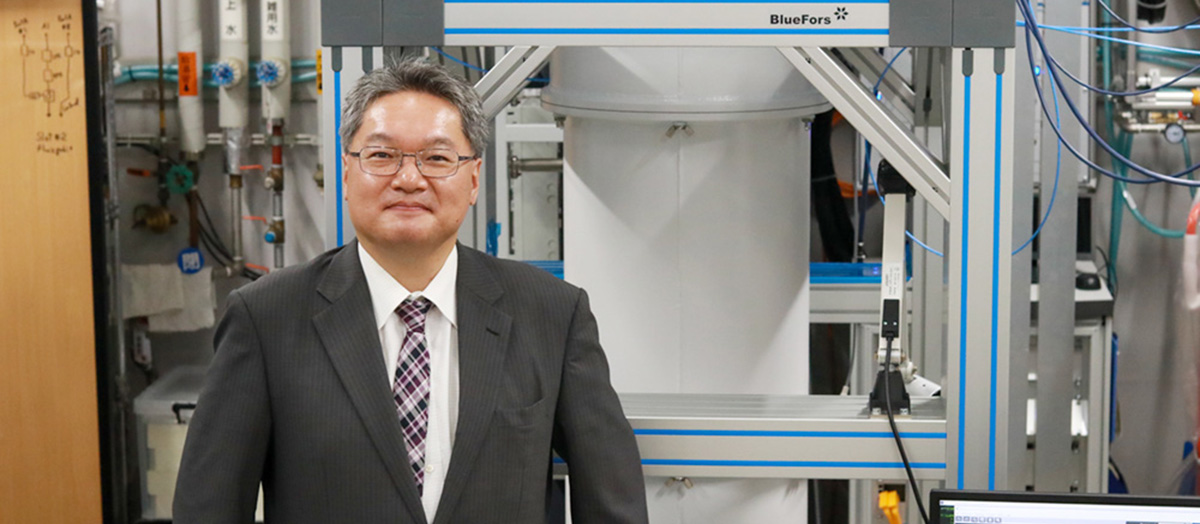
Introduction of the Quantum Computer Technology Promotion Committee
Shiro KawabataChairperson, Quantum Computer Technology Promotion Committee,
Quantum Forum
The Quantum Computer Technology Promotion Committee works to promote and develop quantum computers (fault-tolerant quantum computers, noisy intermediate-scale quantum devices NISQ) and Ising machines (quantum and classical annealing machines) technologies.
Richard Feynman proposed the idea of a quantum computer in 1982. Forty years have passed since then, and now anyone can access an actual quantum computer via the Internet and perform quantum calculations. Large international companies such as Google, IBM, Amazon, Intel, Honeywell, Microsoft, Alibaba, Tencent, and Hitachi in addition to startup companies such as IonQ, Rigetti Computing, XANADU, QunaSys, and Blueqat, are developing quantum computer hardware and software. Moreover, governments of the U.S., Japan, U.K., Europe, China, Taiwan, South Korea, Russia, India, and other countries are investing heavily in research and development in quantum technology, particularly quantum computers.
However, it will take a long time, at least 20 years or more, for fault-tolerant quantum computers to be implemented in society. For that reason, it is also essential to develop quantum human resources that are well versed in both quantum mechanics and engineering and make long-term R&D investments. Research and development of Ising machines, which are expected to be implemented in society in the short to medium term, will also be necessary. The Quantum Computer Technology Promotion Committee holds meetings about four times a year. It carries out the following activities to promote the spread of quantum computer technology in Japan, build an ecosystem and supply chain, and implement quantum computer technology in society.
Sharing of the latest information and topics
The committee, which meets about four times a year, holds seminars for committee members on cutting-edge topics such as business on quantum computers and Ising machine in companies, quantum human resource development, quantum industry-academia collaboration, national quantum projects and quantum hubs. We share information on the latest R&D trends in quantum computers and Ising machines in Japan and promote coordination between members through seminars.
Information dissemination
We disseminate accurate information on various technologies related to quantum computers and Ising machines. In Japan, there is an abundance of inaccurate information about these technologies. We promote a correct understanding of quantum computer and Ising machine technologies by experts providing unbiased information based on scientific evidence. Also, we release interviews with young researchers and engineers who are active in Japan to encourage students and young people to enter the field.
Holding events
We will hold industry-academia collaboration events where industry and academia come together to identify technological areas, including peripheral technologies, where we should strategically promote such collaboration in the future. At the same time, we promote matching between Forum members. And we hold introductory technology seminars and hands-on sessions by experts for members to disseminate basic theories and fundamental technologies.
In addition to the above, we also plan to start examining international standardization, intellectual property strategies, future vision roadmaps, technical documentation, human resource development, and other topics. And as necessary, we hold joint committee meetings and seminars with the Quantum Key Distribution and Quantum Measurement and Sensing Technology Promotion Committees to discuss collaboration among quantum technologies. Moreover, we will also seek cooperation with national quantum projects (Q-LEAP, Moonshot, NEDO, SIP, etc.), Quantum Technology Innovation Hubs (QIH), and the Quantum Strategic Industry Alliance for Revolution (Q-STAR).